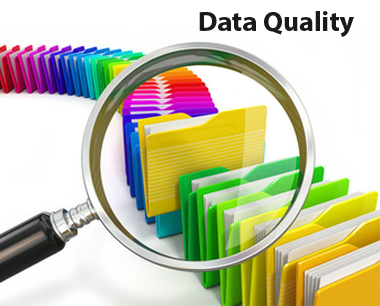
Having the right information at the right time determines your ability to make decisions, conduct analysis, and create new strategies. For proper analysis and effective decision making, it is imperative that you maintain the right data quality. Clearly defined standardized data quality processes essentially make the process of extracting and accessing information much easier. In addition, integrating the best data quality tools with comprehensive data management strategies will help the business meet these goals.
The key aspects when it comes to addressing data management are integrity, accuracy, completeness, consistency, timeliness validity, relevancy, cleanliness, and profiling. All these dimensions must be effectively addressed in data management capacities with help from the best data quality tools. Such capacities should be part of the enterprise data quality tools as explained below.

Best Data Quality Tools Help With Data Governance
Maintaining consistent and clean data includes defining the quality management, measurable quality, as well as the overall organizational confidence in the information that is provided to the business users. In this environment, governance involves reference data, content definition, calculation engine, reporting tools, databases, and other technologies. In most cases, individual businesses usually implement their own solutions. A common enterprise data quality solution will in contrast form a uniform source and platform for reporting across multiple groups.
Data Architecture
Engaging users throughout the whole development cycle is essential, as well as building trust in the implementers and the architecture itself. It is important that they implicitly participate in developing the reports that are classified as low in complexity. In addition, an approach that permits the relations manager to establish links between the business entity and information management in order to validate the alignment of concerned members.
This allows for increased support for the framework selected by the organization, and improves the capacity to represent the various models in a way that all stakeholders can relate. In addition, it improves the support for enterprise use, requirements for traceability, and support for meta-models.
Data Archiving or Retention
Analytic solutions are seldom a business point solution. In this case, specific archival policies independent of the ERP systems should be developed in order to support the regulatory obligations as well as the organization’s requests to conduct trend analysis.
Data Quality Management
The most essential elements to assess in data quality tools include defining and evaluating profiling rules, as well as defining and auditing cleansing rules. Data standards specific to the organization should be incorporated and source systems corrected through the maintenance of these rules during the life cycle of the data management process.
Master Data Management (MDM)
Multiple instances of ERP implementations, functional groups maintain data differently, custom solutions, and reference to the same data element differently often cause complexities in the organization. MDM systems should maintain a data hierarchy, auditing, versioning, continuous merge, single copies, and multiple copies. The best data quality tools must accommodate such requirements.
A holistic approach should be used in leveraging these capacities by the enterprise data quality tools, in order to achieve the desired outcomes in data management. The capital required could be significant in supporting these solutions, nut their effectiveness is well worth it.







